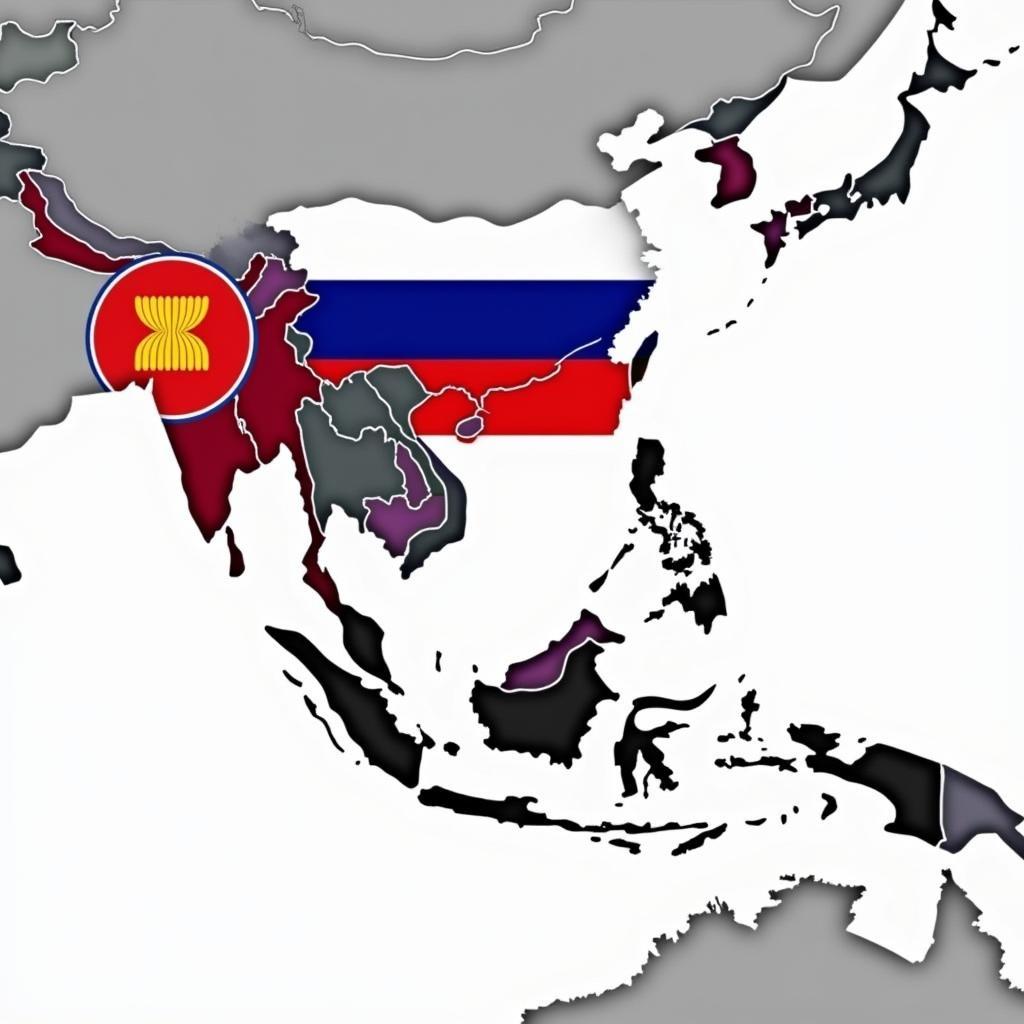Asean And Constructivism are intertwined, shaping the region’s identity and cooperation. Constructivism, a social theory, offers valuable insights into how shared norms, ideas, and identities influence ASEAN’s evolution. This article delves into the relationship between ASEAN and constructivism, exploring how this theoretical framework illuminates the dynamics of regional cooperation and integration.
Understanding Constructivism in the ASEAN Context
Constructivism emphasizes the role of shared beliefs and norms in shaping state behavior. In the ASEAN context, this translates to how shared identities, norms, and values contribute to regional cooperation. Unlike traditional theories that focus on material power, constructivism highlights the importance of social interactions and the construction of shared meanings. This perspective helps explain ASEAN’s unique approach to regionalism, which prioritizes consensus-building, informality, and non-interference.
The “ASEAN Way”: A Constructivist Perspective
The “ASEAN Way,” characterized by its emphasis on consensus and non-interference, can be viewed through a constructivist lens. It reflects a shared understanding among member states about appropriate behavior and decision-making processes within the regional organization. This shared understanding, built over time through dialogue and interaction, has become a defining feature of ASEAN’s identity.
Norms and Identity Formation in ASEAN
Constructivism sheds light on how norms and identities are constructed and reinforced within ASEAN. Through regular interactions, dialogues, and joint activities, member states have developed a sense of shared regional identity. This shared identity, in turn, facilitates cooperation and helps manage potential conflicts. The ASEAN Charter, adopted in 2007, further solidified these norms and principles, providing a formal framework for regional cooperation.
How Constructivism Explains ASEAN’s Successes
ASEAN’s successes in maintaining regional peace and stability can be partly attributed to the constructivist principles at play. By prioritizing dialogue and consensus-building, ASEAN has managed to avoid major conflicts among its diverse member states. This approach also allows for flexibility and adaptability in addressing emerging challenges.
The Role of Socialization in ASEAN Cooperation
Socialization, a key concept in constructivism, plays a crucial role in ASEAN cooperation. Through regular interactions and exchanges, member states learn from each other and internalize shared norms and values. This process fosters trust and understanding, which are essential for effective regional cooperation.
Constructivism and ASEAN’s Evolving Identity
ASEAN’s identity is not static; it is constantly evolving and being shaped by internal and external factors. Constructivism helps us understand how these factors influence the ongoing construction of ASEAN’s regional identity. As the regional landscape changes, so too will ASEAN’s identity and the norms that govern its interactions.
Challenges and Future Directions
While constructivism offers valuable insights into ASEAN’s dynamics, it also faces certain challenges. The theory has been criticized for neglecting the role of material power and national interests. Furthermore, the emphasis on consensus can sometimes lead to slow decision-making processes.
Balancing National Interests and Regional Cooperation
One of the key challenges for ASEAN is balancing national interests with regional cooperation. While constructivism emphasizes shared identities, member states still have their own priorities and concerns. Finding a balance between these competing interests is crucial for ASEAN’s continued success.
ASEAN and Constructivism in a Changing World
How will ASEAN and constructivism interact in a rapidly changing world? This is a key question for the future of regional cooperation. As new challenges emerge, ASEAN will need to adapt and evolve while staying true to its core principles of consensus and non-interference.
Conclusion
ASEAN and constructivism are deeply intertwined. Constructivism offers a valuable framework for understanding how shared norms, identities, and values shape regional cooperation in Southeast Asia. While challenges remain, ASEAN’s commitment to dialogue and consensus-building provides a solid foundation for navigating the complexities of regional integration in a changing world.
FAQ
- What is constructivism in international relations?
- How does constructivism explain the ASEAN Way?
- What are the limitations of applying constructivism to ASEAN?
- How does socialization contribute to ASEAN cooperation?
- What is the future of ASEAN and constructivism?
Need support? Contact us 24/7: Phone: 0369020373, Email: [email protected] or visit us at Ngoc Lien Village, Hiep Hoa, Bac Giang, Vietnam.

